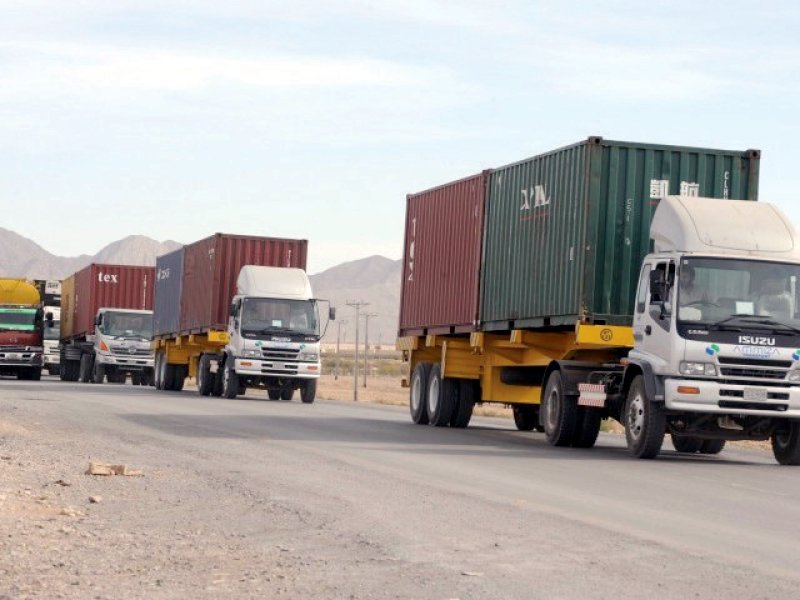
In yet another setback to the already flagging trade normalisation process, Pakistan said on Monday it would not enter into any bilateral trade agreement until India addressed core concerns relating to non-tariff barriers hampering exports of Pakistani goods.
Pakistan would not grant Non-Discriminatory Market Access (NDMA) to India until New Delhi addressed Islamabad’s concerns about non-tariff barriers, said Sartaj Aziz, Adviser to Prime Minister on National Security and Foreign Affairs.
He was responding to a media question whether by the end of February Pakistan would grant NDMA status to India. The term NDMA has been coined by both the nations after the Most Favoured Nation (MFN) status triggered fierce resistance.
The difference between NDMA and MFN is that the latter enjoys protection under the World Trade Organization Treaty while the former would primarily be a bilateral arrangement.
Aziz was speaking after attending a seminar on “Economic Policies for Inclusive and Sustainable Development in South Asia”. The conference was jointly arranged by Germany’s Friedrich Ebert Stiftung institute and Sustainable Development Policy Institute.
The German institute had launched a project called “South Asia Regional Forum on Economy of Tomorrow” about two years ago. Its main objective is to identify an alternative development path for growth and forming coalitions for its implementation.
There were expectations that New Delhi would soon announce some concessions and relax restrictions on movement of goods. In response, Pakistan would approve NDMA status for New Delhi within a week.
Pakistan’s reluctance to step up trade normalisation highlights the deep-rooted mistrust between the two countries. Earlier, Indian commerce minister cancelled a scheduled three-day visit to Pakistan, saying Islamabad was not fulfilling its commitments.
According to analysts, the non-tariff barriers are adversely affecting Pakistan’s exports. For instance, despite granting MFN status to Pakistan by India in 1996, Pakistan’s exports to India remained negligible compared to Indian exports to Pakistan.
The obstacles to trade normalisation are also hurting trade with the South Asian region and between South Asia and Central Asia.
Aziz said without a rapid growth Pakistan could not solve problems of poverty and security. The country should take inspiration from India, China and Bangladesh, he added, while admiring their growth models.
He pointed out that Pakistan was aiming for 5% growth in the next three years while India was not happy even with 5% and aspiring for 7-8% economic expansion.
He emphasised the need for inclusive and sustainable growth, which also benefitted marginalised groups of society. He said a prerequisite to inclusive growth was land reforms that also ensured benefits to small landholders.
He said the mindset of the country’s elite was also one of the prerequisites. The extent of decentralisation and attitude of bureaucracy were also necessary for inclusive growth. Terms of trade in agriculture were also one of the prerequisites for inclusive growth.
Speaking on the occasion, former finance minister Dr Hafiz Pasha said Pakistan fared better than many South Asian countries in reducing poverty and ensuring equitable distribution of wealth.
Referring to a study of the World Bank that summarised trends between 1980 and 2008, Pasha said Pakistan managed to reduce poverty by two-thirds despite the fact that per capita income grew on average 2.5% per annum. He described the achievement as striking and remarkable.
According to him, during the period under review, employment increased 3% per annum compared to less than 2% in South Asian countries.
Published in The Express Tribune, February 25th, 2014.
Like Business on Facebook, follow @TribuneBiz on Twitter to stay informed and join in the conversation.
COMMENTS (12)
Comments are moderated and generally will be posted if they are on-topic and not abusive.
For more information, please see our Comments FAQ

















Other than cement you offer nothing to us. India needs to shutdown trade with Pakistan once they run out of their limestone reserves.
@MAyOr: Honestly, the standard in India are way better than in Pakistan at any time. Could you please name one product manufactured by Pakistan which is better than India?
@Mustafa Khan:
"Reading the above comments it gives me a hitch that Pak should give Ind a NDMA status and then pose stringent non-tariff barriers???"
That would be a fair deal. But remember Non-tariff Barriers would not be country-specific, they would apply to "all" countries including China. Now you would not want to make China angry ...do you?
joke of the year aco to nawaz sharif Pakistan growing at 5%...acco to IMF we r growing under 3%...Hope ImRan khan lead pakistan to shining 7% growth ....
Dear pak friends Pakisthan born in our family we proud of that. And you people treat us like your elder brother, so give us NDMA status without any argument. ok
Thanks Pakistan. Please give MFN to TTP.
Not sure, why India is taking efforts to normalize relationship with Pakistan. India should wash-off hands with Pakistan with such irrational thinking and deeds. Inspite of such huge trade deficits with China, does Pakistan stop trading with China on these flimsy grounds. Does Pakistan produce enough quality goods that India is compelled to import? Who will get hurt more because of this action? Who is painting itself into a corner?
ET: please publish. Nothing derogatory written about Pakistan or Pakistanis
Scrap MFN from India. No need to proceed on this.
India should withdraw MFN. No need to proceed on this.
What Pakistan wants is that India should lower down the standards for imported goods so that Pakistan can send few. Thanks but no Thanks.